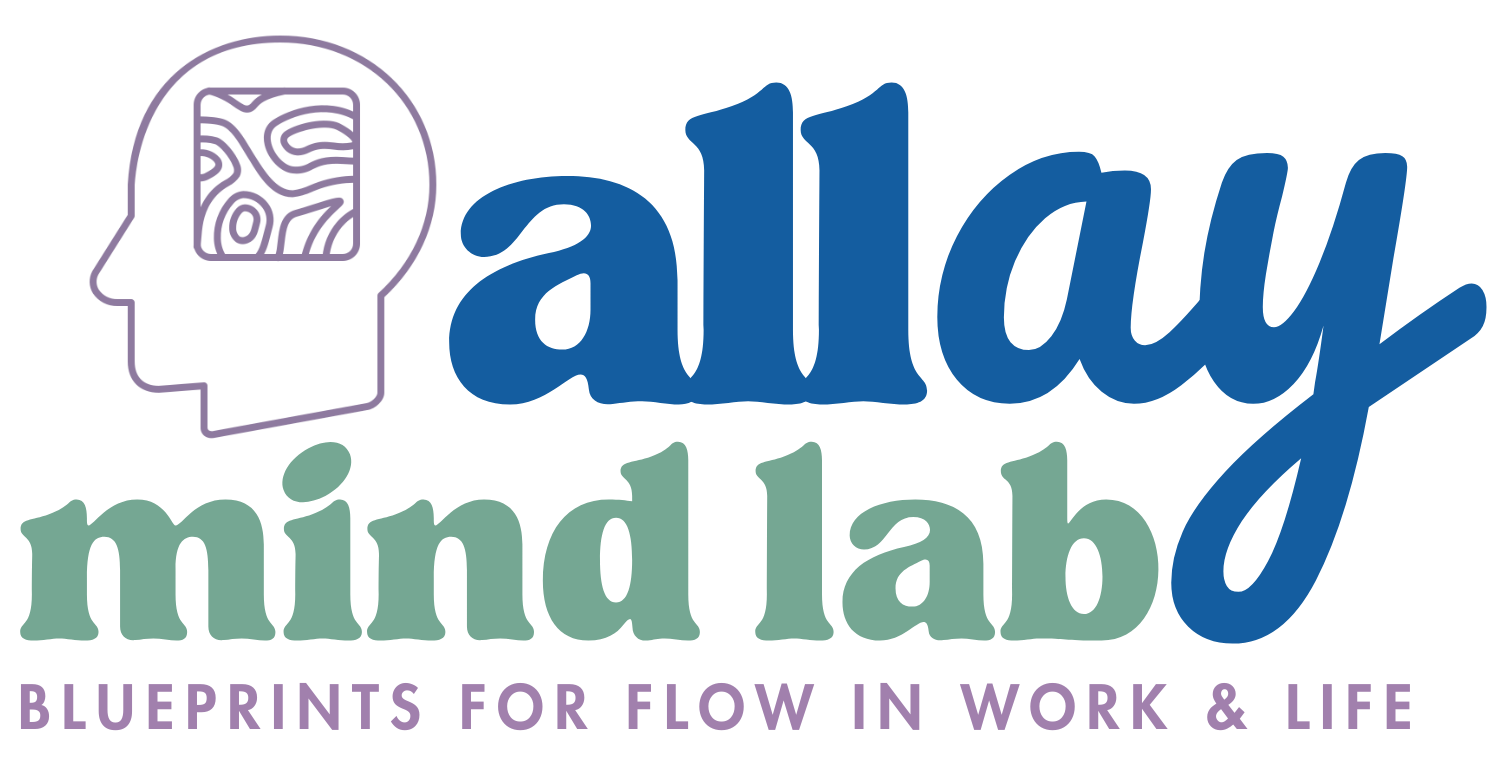Growth Practice for a Life That Flows
Flow is the energized state where focus feels easy, creativity unfolds naturally, and you’re immersed in the moment with purpose and clarity. Whether you’re building a business, reclaiming your energy, or rediscovering who you are, we help you create blueprints for living and working in alignment with your true self.
Hi, I’m Becca. I’m so glad you’re here!
Helping people has always been a passion of mine, and I’ve spent many years working toward my dream of creating a space where growth, healing, and transformation can happen. I’m currently finishing up my PhD in General Psychology with an emphasis in Industrial and Organizational Psychology. I also hold a Master’s in Entrepreneurship in Applied Technology from the University of South Florida. I have over a decade of experience working with people in human resources.
My dissertation focuses on emotional well-being and cultivating psychological safety within remote work teams for small and medium-sized businesses—an area I believe is deeply needed in today’s work culture. I’m currently working on becoming a certified sex counselor and a Board Certified Coach to further support the whole human experience, professionally, emotionally, and relationally.
I’ve always been especially drawn to positive psychology and prevention psychology. Rather than following a traditional clinical path, I chose to focus on coaching and organizational well-being because I believe in supporting people proactively, before stress or imbalance begins to take a toll. I’m passionate about helping others focus on the present and future through mindfulness, aligned action, and forward momentum rather than staying stuck in the past. That passion is what led me to the path I’m on today.
Allay Mind Lab is where psychology meets flow. It’s a space for people who are ready to heal, grow, and build lives that feel good to be in both personally and professionally. I work with individuals and entrepreneurs through a holistic, trauma-aware lens, offering coaching, consulting, and strategy that blends emotional insight with business intelligence.
Whether you’re recovering from burnout, navigating a career change, building a purpose-led business, or exploring a healthier relationship with sex, work, or yourself—this is a space to create sustainable, psychology-rooted change.
Together, we build blueprints for a life and career that actually flows.
What is Coaching?
Coaching is a collaborative process aimed at helping individuals identify and achieve personal or professional goals. It focuses on enhancing self-awareness, setting actionable objectives, and developing strategies to overcome obstacles. Through structured conversations and personalized guidance, I’m here to empower you to unlock their potential and make meaningful progress in various areas of life and business.
How Does Coaching Differ from Therapy?
The main difference is the focus. Therapy often looks at the past and helps you heal from emotional pain, trauma, or mental health challenges. Coaching is more future focused. It supports you in setting goals, finding direction, and taking aligned action in your life, work, or relationships. While they are different, they can work hand in hand. Many people benefit from seeing both a therapist and a coach at different times or even at the same time depending on their needs.
How is Coaching and Therapy similar?
Coaching, counseling, and therapy all offer supportive spaces for growth, reflection, and change. They each involve a trusting relationship where you can explore challenges, gain clarity, and work toward a better version of yourself. Like therapy, coaching can help you increase self-awareness, build confidence, and navigate life transitions. Both are rooted in active listening, goal setting, and creating meaningful change.

Packages
Momentum Package: Business & Website Launch
This package is perfect for new entrepreneurs, freelancers, and service-based professionals looking for a structured, psychology-backed approach to launching their business. By combining expert business coaching, Industrial-Organizational (I/O) Psychology principles, and hands-on website creation, this program ensures you build a strong strategic foundation while establishing a professional online presence. Get the clarity, tools, and momentum you need to launch with confidence and attract your ideal clients from day one.
Career & Business Evolution
Elevate your career or business with evidence-based strategies rooted in Industrial & Organizational Psychology. This coaching package helps professionals and entrepreneurs overcome setbacks, enhance leadership skills, and develop a resilient mindset for long-term success. Gain science-backed tools to optimize productivity, decision-making, and workplace well-being.
Beyond the Labels: Build, Grow & Flourish
Break free from limiting labels and create a career or business that aligns with your values, creativity, and personal vision. This evidence-based coaching program helps professionals, entrepreneurs, and adult creators develop a resilient mindset, structure their work for sustainable success, and build confidence in their unique path.
Not sure which package fits your needs? A consultation is the perfect place to start. Whether you’re navigating career transitions, workplace challenges, entrepreneurship struggles, or personal growth, this session helps us explore your goals and determine the best way forward.
Testimonals

To Allay something means that you are calming it or reducing difficulties. It is used commonly in the context of to allay concerns and to comfort and some of its many synonyms are alleviate, decrease, mitigate, assuage and mollify. So, if you can allay someone’s fears, you are lightening their mood
“As I walk along the shore, the gentle waves allay my fears, bringing peace and tranquility to my mind.”
